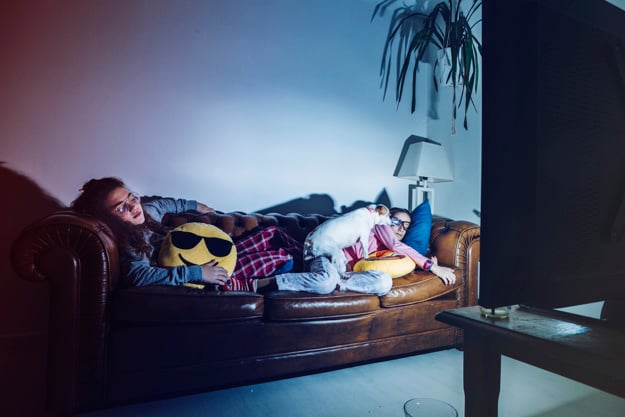A new study has found that women who fall asleep with bright lights or while watching television are at higher risks of obesity.
The study, which examined the data of 43,722 women, revealed that women who sleep with a light or television on were 17 per cent more likely to gain five kilograms or 11 pounds over a period of five years.
Published in the JAMA Internal Medicine journal, the research is the first scientific inquiry investigating the relationship between sleeping with artificial light at night and weight gain.
Most past studies have generally linked eating habits and short sleep to obesity risks in both men and women.
For the new study, researchers at the National Institute of Environmental Health Sciences analyzed participants on the basis of their weight, body mass index (BMI) and their exposure to artificial light during the night.
The cohort study comprises women between the age of 35 and 74. Their sleeping habit was grouped into four categories — no light, small nightlight in the room, light outside of the room, and light or television in the room.
The researchers classified women who reported more than one type of artificial light as having the highest level of exposure. Meanwhile, women who slept with a mask on or reported no light while sleeping were classified as experiencing no artificial light exposure.
Findings of the research also indicated that women who fell asleep under artificial lights have a 22% chance of becoming newly overweight and a 33% chance of becoming obese.
“These results suggest that exposure to ALAN (artificial light at night) while sleeping may be a risk factor for weight gain and development of overweight or obesity,” Yong-Moon Mark Park, co-investigator for the research said.
The new findings also highlight “the common recommendation that we make for people to remove TVs and other technology out of the bedroom environment to facilitate healthy sleep,” said Nathaniel Watson, a professor of neurology and director of the Harborview Sleep Clinic at the University of Washington in Seattle.
Copyright 2024 TheCable. All rights reserved. This material, and other digital content on this website, may not be reproduced, published, broadcast, rewritten or redistributed in whole or in part without prior express written permission from TheCable.
Follow us on twitter @Thecablestyle

